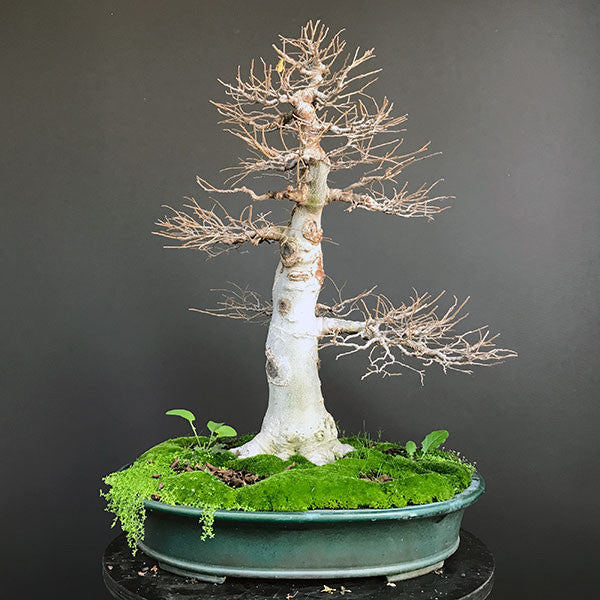The Chinese Hackberry Bonsai Tree is a beautiful bonsai. It is known for its delicate leaves and elegant style. This tree is perfect for beginners and experts.
What is a Chinese Hackberry Bonsai Tree?
The Chinese Hackberry (Celtis sinensis) is a type of tree. It is native to East Asia. It is popular for bonsai because it has small leaves and grows well in containers.
Why Choose a Chinese Hackberry Bonsai Tree?
There are many reasons to choose this bonsai tree:
- Easy to grow and care for.
- Can be shaped into various styles.
- Beautiful small leaves.
- Thrives in different climates.
How to Grow a Chinese Hackberry Bonsai Tree
Growing a Chinese Hackberry Bonsai Tree is easy. Follow these simple steps:
1. Choose The Right Container
Pick a pot with good drainage. The pot should be shallow but wide. This helps the tree grow well.
2. Use The Right Soil
Use bonsai soil. This soil is well-draining. It helps the roots get enough air and water.
3. Plant The Tree
Place the tree in the pot. Fill the pot with soil. Make sure the roots are covered. Water the tree well.
4. Water The Tree
Water the tree when the soil is dry. Do not let the soil stay wet. This can cause root rot.
5. Provide Enough Light
Place the tree in a spot with bright light. It needs at least six hours of sunlight each day.

Credit: www.bonsaitree.co.za
How to Care for a Chinese Hackberry Bonsai Tree
Caring for a Chinese Hackberry Bonsai Tree is easy. Follow these tips:
1. Watering
Water the tree when the soil is dry. Do not overwater. This can harm the tree.
2. Fertilizing
Use bonsai fertilizer. Apply it every two weeks during the growing season. Do not fertilize in winter.
3. Pruning
Prune the tree to shape it. Remove any dead or unwanted branches. Do this in early spring.
4. Repotting
Repot the tree every two years. This gives the roots more space to grow. Do this in late winter or early spring.

Credit: bonsai-south.com
How to Style a Chinese Hackberry Bonsai Tree
Styling a Chinese Hackberry Bonsai Tree is fun. You can create many shapes. Here are some popular styles:
1. Formal Upright
The tree grows straight up. The branches are evenly spaced. This is a classic style.
2. Informal Upright
The tree grows with slight curves. The branches are not evenly spaced. This style looks natural.
3. Slanting
The tree grows at an angle. The branches grow outwards. This style looks like a tree on a hillside.
4. Cascade
The tree grows downwards. The branches hang below the pot. This style looks like a tree on a cliff.
| Style | Description |
|---|---|
| Formal Upright | Tree grows straight up, evenly spaced branches. |
| Informal Upright | Tree grows with curves, natural look. |
| Slanting | Tree grows at an angle, looks like on a hillside. |
| Cascade | Tree grows downwards, branches hang below the pot. |
Common Problems and Solutions
Even with good care, problems can happen. Here are common problems and solutions:
1. Yellow Leaves
Yellow leaves can mean overwatering. Let the soil dry before watering again.
2. Leaf Drop
Leaf drop can be from sudden changes in light. Move the tree slowly to a new spot.
3. Pests
Pests like aphids can harm the tree. Use insecticidal soap to get rid of them.
4. Root Rot
Root rot happens from too much water. Make sure the pot has good drainage.
Conclusion
The Chinese Hackberry Bonsai Tree is a great choice. It is easy to grow and care for. You can create beautiful styles with it. Follow the tips in this guide for a healthy tree.
FAQs
1. How Often Should I Water My Chinese Hackberry Bonsai Tree?
Water the tree when the soil is dry. Do not let the soil stay wet.
2. Can I Grow A Chinese Hackberry Bonsai Tree Indoors?
Yes, but make sure it gets enough light. Place it near a sunny window.
3. What Is The Best Fertilizer For A Chinese Hackberry Bonsai Tree?
Use bonsai fertilizer. Apply it every two weeks during the growing season.
4. How Do I Know If My Tree Needs Repotting?
Repot the tree if the roots are crowded. Do this every two years.
5. What Should I Do If My Tree Gets Pests?
Use insecticidal soap to get rid of pests like aphids.

